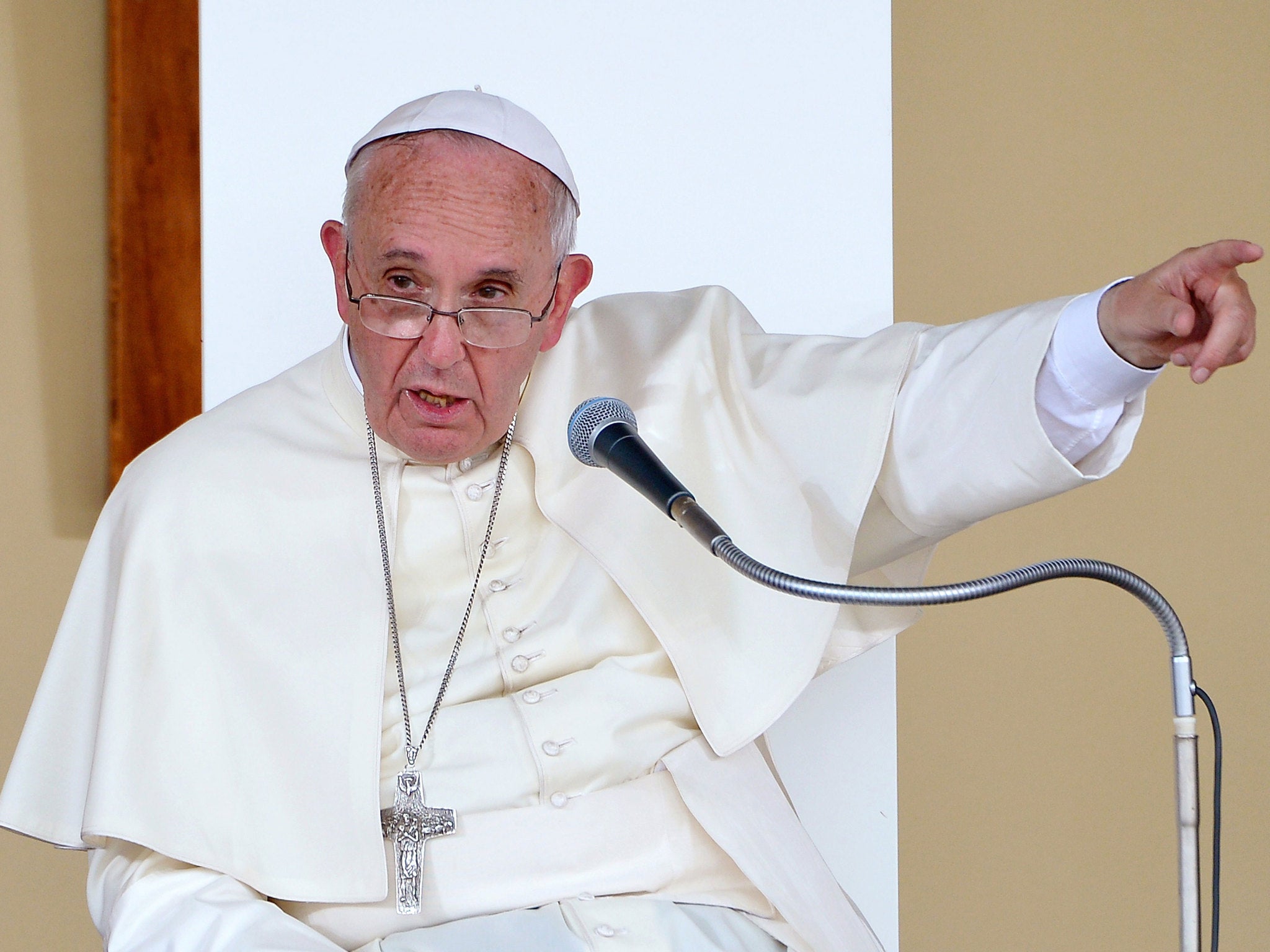Pope Francis: Why didn't allies bomb railway routes taking prisoners to Auschwitz?
The pope asks why "great powers" did not act on intelligence showing Jews, Christians and gays were being taken to death camps

Your support helps us to tell the story
From reproductive rights to climate change to Big Tech, The Independent is on the ground when the story is developing. Whether it's investigating the financials of Elon Musk's pro-Trump PAC or producing our latest documentary, 'The A Word', which shines a light on the American women fighting for reproductive rights, we know how important it is to parse out the facts from the messaging.
At such a critical moment in US history, we need reporters on the ground. Your donation allows us to keep sending journalists to speak to both sides of the story.
The Independent is trusted by Americans across the entire political spectrum. And unlike many other quality news outlets, we choose not to lock Americans out of our reporting and analysis with paywalls. We believe quality journalism should be available to everyone, paid for by those who can afford it.
Your support makes all the difference.The Pope has attacked the world’s “great powers” for failing to do more to protect the victims of the Holocaust, asking why they did not bomb railway routes used to carry prisoners to Auschwitz.
In a stinging assessment of the actions of the allies during World War II, Pope Francis said they did no act on intelligence indicating Jews, Christians, gays and Roma were being transported to death camps.
Francis made the impromptu remarks during a discussion about cynicism with politics with young people at an event in Turin.
He also lamented the suffering of Christians at Stalin’s concentration camps in the Soviet Union following the end of the war, and the slaughter of Armenians in the Ottoman Empire in 1915.
''The great powers had photographs of the railway routes that the trains took to the concentration camps, like Auschwitz, to kill the Jews, and also the Christians, and also the Roma, also the homosexuals," Pope Francis said.
"Tell me, why didn't they bomb" those railroad routes?”
The question of American and British bombers did not target Auschwitz, even after they had been made aware of the true nature of the death camps by summer 1944, has remained controversial.
Historians disagree over whether a precise enough military strike would have been possible or effective in stopping people dying in the gas chambers. It was not until months later, in January 1945, that the Soviets liberated Auschwitz.
Pope Francis last week waded into the debate about climate change, publishing an 180-encyclical calling for the rich nations to do more to combat carbon emissions.
Referring to concentration camps that came "a little later" in Russia, Pope Francis asked ''how many Christians suffered, were killed" at the camps.
Slamming the actions of world powers such as America, the Soviet Union and Britain in the 1930s and 1940s, Francis said: "The great powers divided up Europe like a cake."
He also cited what he called the "great tragedy of Armenia" in the last century. ''So many died. I don't know the figure, more than a million, certainly. But where were the great powers then? They were looking the other way," the Pope said.
In April, the Pope angered Turkey when he referred to the slaughter of Armenians by Turkish Ottomans as "genocide."
Francis added that "everything is done for money" in today’s world and he criticised those who preach peach while manufacturing and selling arms.
The pontiff reiterated his view that conflicts in the world today are tantamount to "a Third World War in segments."
Additional reporting by Associated Press
Join our commenting forum
Join thought-provoking conversations, follow other Independent readers and see their replies
Comments